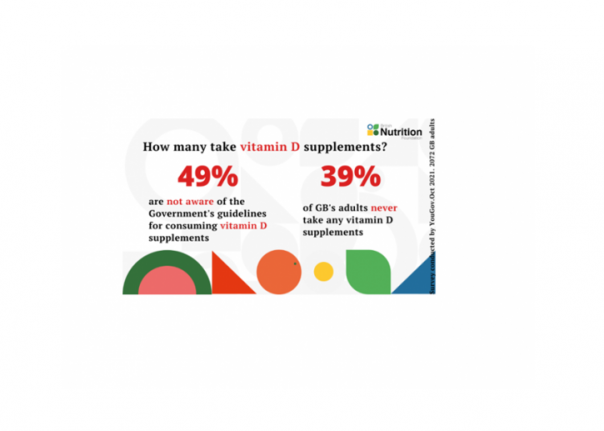
Vitamin D is essential for keeping our bones and muscles healthy as well as supporting people’s immunity.
While you can get some vitamin D from food, the main source is from sunlight exposure on the skin. During the Autumn and Winter months the UV levels from the sun are not strong enough for us to make vitamin D in our skin.
The National Diet and Nutrition Survey shows that around one in six adults have low levels of vitamin D in their blood. The Government advises everyone to consider taking a daily vitamin D supplement of 10 micrograms from October-March to help keep bones and muscles healthy.
The survey also found that:
- 26% say they take vitamin D supplements all year round
- 8% say they take vitamin D supplements for most of the year
- 8% say they take them during the autumn and winter months (October to March)
- while 15% take them ‘inconsistently’
- 39% say they never take vitamin D supplements
Sara Stanner, science director at British Nutrition Foundation, commented: “A balanced diet can give us most of the nutrients we need. But vitamin D is an exception because our main source is UV exposure from sunlight on skin and there are relatively few rich dietary sources.
“We have seen little improvement in vitamin D status in the population in recent years. So, it is really important that we raise awareness of the need to consider supplements from October to March to make sure we are getting the vitamin D we need to keep us healthy.”